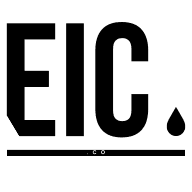What Are Examples of Successful Mentoring Approaches in Editing?
Seeking wisdom from the frontlines of the editing world, we posed a question to seasoned professionals about their experiences mentoring up-and-comers. From fostering friendship and open-mindedness to guiding junior editors to professional standards, dive into the top seven stories and strategies shared by Editors in Chief and founders.
- Foster Friendship and Open-Mindedness
- Transform Drafts Into Polished Manuscripts
- Create Trust and Safe Feedback Spaces
- Guide Writers Through Honest Critique
- Build Creative Confidence and Acknowledge Ideas
- Establish Trust Through Free-Writing Sessions
- Guide Junior Editors to Professional Standards
Foster Friendship and Open-Mindedness
When I mentor a younger or less-experienced editor, or work with a writer, I simply view them as the eager learners they are. I've learned that being a friend first is what's most important, because who doesn't value the opinions of a trusted friend? My mentees are often my best teachers, so I always approach any editing session with an open mind and ask questions, rather than dictating what my editing choices are. I want to know what style they are following.
The last thing a good editor wants is to be confusing to another editor, a writer, or readers. Often, inexperienced editors and many writers don't want to follow a style guide, so we work on a few pages of the same project and compare results. This allows them to see for themselves the value in following a set style—even if the guide is one they create themselves.

Transform Drafts Into Polished Manuscripts
One of my most rewarding experiences was mentoring a debut writer who was struggling with her first draft. She faced challenges in developing her story and was unsure how to take the next steps on her writing journey. Through comprehensive developmental editing, we focused on strengthening her plot, character development, and overall narrative structure.
I provided consistent feedback and support, helping her to refine her ideas and improve her writing skills. With this guidance, she was able to transform her initial draft into a polished manuscript, which allowed her to continue with the submission process and acquire a publisher.

Create Trust and Safe Feedback Spaces
In my experience mentoring editors for both printed and online magazines, I've found that the key is building trust and a safe space for feedback. I start by having mentees identify specific areas they want to improve. Then, we work on real-world editing tasks together. I provide constructive criticism on their edits, explaining the “why” behind suggestions.
We also discuss industry best practices and resources. This approach, combined with open communication, helps the mentored person develop their editing skills and confidence, allowing them to make mistakes and learn from them.

Guide Writers Through Honest Critique
As a career editor, I have the privilege of working with many novice writers. The practice of communication and storytelling comes naturally for some, but it requires significant guidance for most. For example, I enjoyed mentorship from an English doctorate during my formative writing years and learned that there is value in the crucible of honest critique and revision.
Writing is a creative art. Hence, it is important for editors to structure their critiques in meaningful ways without compromising the unique vision of each writer.
I recently worked with an entry-level content writer on weekly articles for a cybersecurity website. After delivering a rather in-depth critique of their first draft, the writer responded with worries that they weren't cut out for this line of work—a severe case of impostor syndrome.
In situations like this, providing the writer with an outline of best practices and expectations can mean the difference between them improving their craft and quitting. I took revisions one step at a time with this writer. First, we assessed formatting and structure. As they demonstrated improvements in this area, I guided them through more nuanced concepts, like eliminating passive voice from marketing copy and avoiding language and phrasing that feels too robotic.
This process took several weeks to complete, but I am thrilled to see this writer now confident in their art and producing engaging social media and website content.

Build Creative Confidence and Acknowledge Ideas
As the founder of a sports brand, I’ve had the pleasure of mentoring several team members, including junior editors and writers. My approach is to build creative confidence, which I believe is key to their development and our content strategy as a whole.
One of the success stories is my work with our Junior Editor, Ben. When Ben joined the team, he was talented but wouldn’t share his ideas. We had weekly brainstorming sessions where no idea was too small or too silly. I made sure he felt safe to share his thoughts. I’d acknowledge and praise his ideas and contributions, boosting his self-esteem. When constructive feedback was required, I’d give it in a structured way, focusing on areas for improvement without knocking his confidence.
This paid off, and Ben went from being a nervous newbie to a confident contributor whose ideas added real value to our content.

Establish Trust Through Free-Writing Sessions
I've mentored several junior writers, and one of the most effective things I've done is build trust with my mentees. One mentee, in particular, was going through a tough time, which she found difficult to discuss openly. To help her, I started our meetings with a 10-minute free-writing session. She knew that whatever she wrote was private; I assured her I would never ask to see it, nor should she feel compelled to show it to anyone else. My goal was for her to view writing as a safe space where she could express herself freely without fear of judgment. This approach really fostered a strong sense of trust between us.
It's also important to realize that you don't need to have all the answers. When this mentee first approached me with problems in her writing or personal life, I initially felt inadequate because I couldn't always provide the perfect solution. However, I learned that simply giving her the space to voice her concerns and think things through was incredibly beneficial. Just being there to listen can make a big difference.

Guide Junior Editors to Professional Standards
I mentored a junior editor who joined our team straight out of college. He showed potential but needed guidance to refine his editing skills and adapt to professional standards. I assigned various editing tasks, from proofreading blog posts to reviewing technical documents, and provided feedback on his work, emphasizing clarity and consistency. Over time, his confidence and proficiency in editing grew, and he became a valued member of our team, contributing effectively to our projects.


